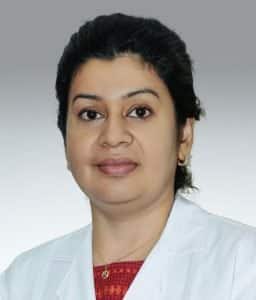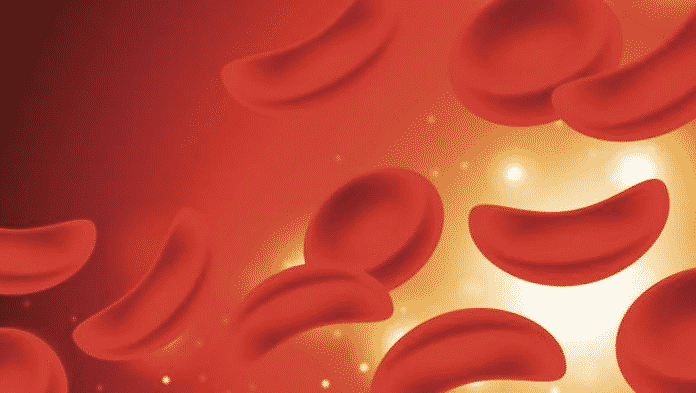September is Sickle Cell Disease Awareness Month, so this is a good time to test your knowledge of one of the commonest genetic diseases in the world, namely sickle cell disease (SCD). Did you know that 1 in 10 Bahrainis carry the abnormal sickle cell gene? The high frequency of this abnormal gene in the Bahraini population means that more than 200 babies with SCD can be expected to be born in Bahrain every year. Apart from Bahrain, this disease is also common in other Middle-Eastern countries, the Indian subcontinent and sub-Saharan Africa.
Try the Q&A session below to check your knowledge of this disease!
What is sickle cell disease?
Sickle-cell disease occurs when the red blood cells in the body which carry oxygen, are shaped like crescents or sickles due to a genetic defect. This can block blood flow in the blood vessels of the body resulting in severe pain crises (lasting for hours or days) and organ damage.
What causes sickle cell disease?
The cause of SCD is a defective gene, called sickle cell gene. People with the disease are born with two defective genes, one from each parent. If you are born with one defective gene, it’s called sickle cell trait. People with sickle cell trait are generally healthy, but they can pass the defective gene on to their children. If both parents have sickle cell trait there is 1 in 4 chance, that their child will have sickle cell disease.
How is sickle cell disease diagnosed?
A blood test can show if you have SCD or sickle cell trait. People who are thinking about having children should have the test to find out how likely it is that their children will have SCD. Bahrain tests all newborns for SCD as part of a screening program. Doctors can also diagnose SCD before the baby is born using a sample from the amniotic fluid (the liquid in the sac surrounding the baby) or the placenta (the tissue that brings oxygen and nutrients to the baby). The latter test is recommended if both parents have one or 2 sickle cell genes.
What are the symptoms of sickle cell disease?
People with SCD start to have signs of the disease a few months after birth. Most of the symptoms are related to lack of oxygen reaching the organs. These may include severe pain, anemia or lack of blood, organ damage, and infections. Strokes, lung damage, and blindness can occur more frequently in SCD than in normal people. Lung damage is an important cause of death in SCD patients.
Is there treatment for sickle cell disease?
The only cure for SCD is bone marrow transplantation, a procedure which takes blood forming cells from a healthy person (usually brother or sister) and transfers it into the patient. This procedure can have serious side effects, and hence is offered only to children or adults with severe SCD. Newer treatments like gene therapy to correct the defective gene are also now being tested, and offer new hope for curing this disease.
There are other treatments that can reduce symptoms and prolong life. A drug called hydroxyurea can decrease the number of severe pain episodes by about 50% in patients. Pain relief medications are an important part of treatment in addition to immunization to prevent infections. Some patients with severe complications like stroke may need regular monthly blood transfusions to prevent further complications.
Can patients with sickle cell disease
become pregnant?
It is possible for women with sickle cell disease to have a normal pregnancy, but they must be extra careful in their medical care and monitoring throughout pregnancy, in order to prevent complications like pain crises and preterm labour.
Can we prevent sickle cell disease?
Consanguinity (marrying close blood relatives) is an important cause of sickle cell disease. In Bahrain the rate of cousin marriage was around 40% (1990 data), but campaigns by the health ministry to educate the public about the risks of consanguinity in transmitting genetic diseases has led to a decrease in this practice. Bahrain successfully implemented a campaign to control hereditary blood diseases in 1991-1993. This campaign included education of public, as well as premarital, prenatal and newborn screening. As a consequence of these efforts, which continued for about 20 years, the incidence of sickle cell disease in Bahrain has now declined by 50-60%, but nevertheless continues to be a major public health problem.
Tips for people living with sickle cell disease
1. Search for a doctor who is trained in treating SCD. Knowledge of this disease may not be optimal among general practitioners.Always keep a record of your medical history since as a patient you may even need to educate healthcare providers who may be unfamiliar with SCD. Pain management is a crucial part of treatment, so make sure that your health practitioner is comfortable with prescribing and adjusting pain medications especially narcotics. Otherwise get referred to a hospital with expertise in treating this disease.
2. Make sure that you get regular medical
care, live a healthy lifestyle, and avoid situations that may set off a pain crisis like vigorous physical activity, severe stress, dehydration or extreme temperatures. Practise healthy habits like taking a healthy diet, and drink at least 8 glasses of water a day. Take your medicines regularly.
3. Get regular check-ups once every 2-3 months. Make sure your vaccinations are up to date and practise regular hand hygiene or handwashing to prevent infections. Stay active and find or form a support group comprising other sickle cell patients so you can stay abreast of the latest trends in SCD and also raise awareness in the community about this disease.
With optimal monitoring, improved public awareness, and community support, people with sickle cell disease can be helped to lead a near normal life. Let us join hands in spreading awareness about this disease in order to enable those who suffer silently from SCD to fulfill their dreams and aspirations.

Consultant Hematologist
Email: shruti.sudha@bsh.com.bh

